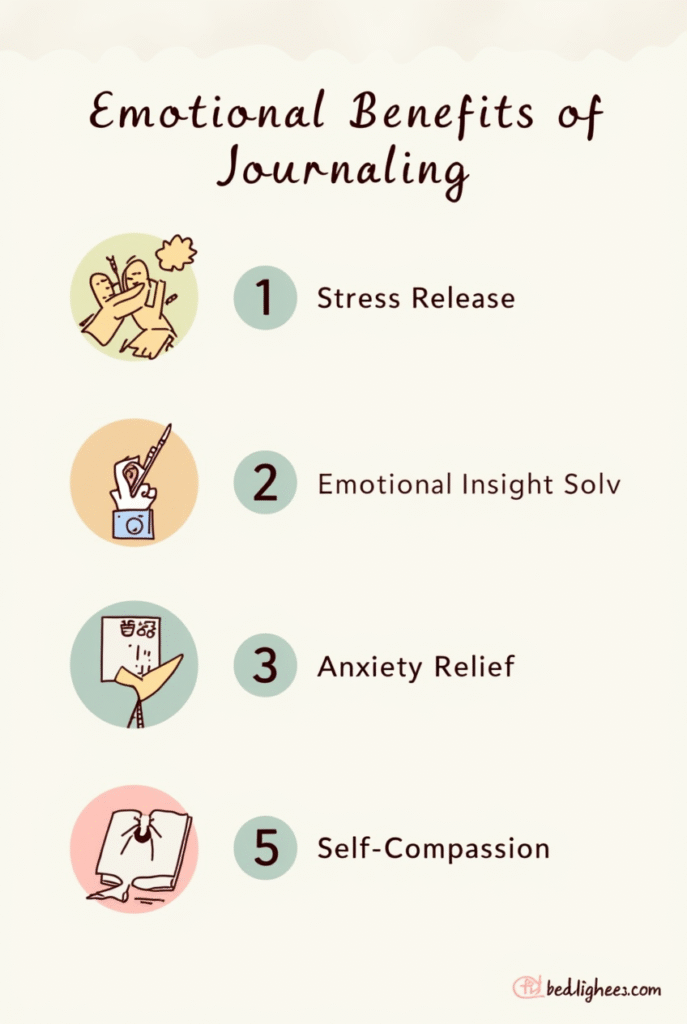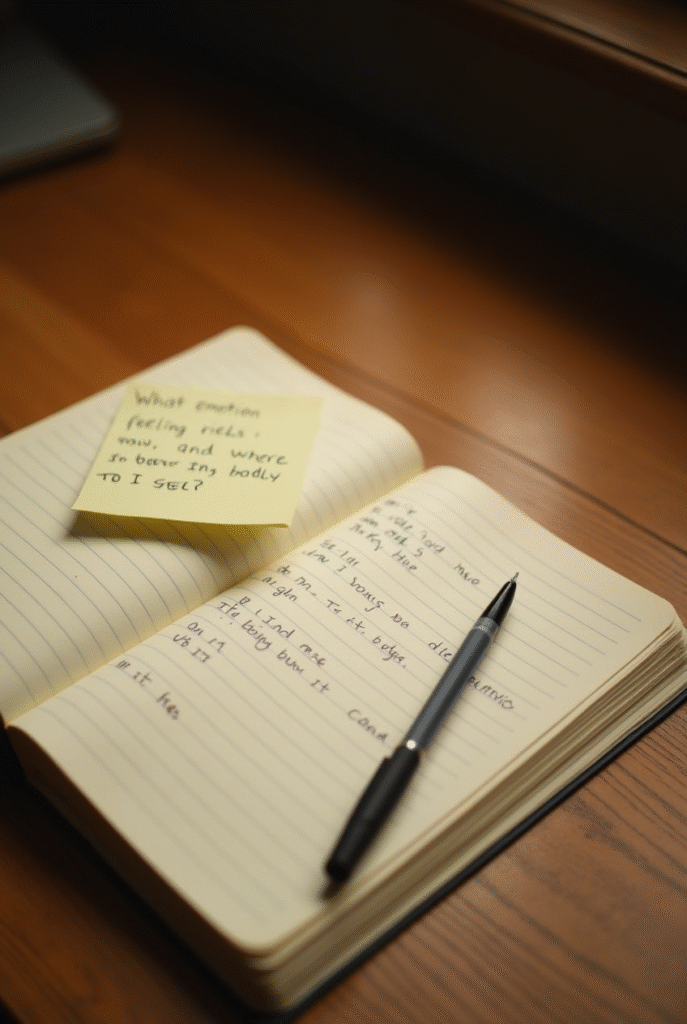The Mental Health Benefits of Writing
🧠 Why Writing Is a Powerful Tool for Mental Health
In a fast-paced world filled with emotional ups and downs, finding simple yet meaningful ways to care for your mental wellbeing is more important than ever. One of the most underrated tools? Writing therapy.
Journaling isn’t just about venting or chronicling your day—it’s a therapeutic practice backed by research. Whether through structured prompts or free-flow writing, journaling helps regulate emotions, manage stress, and foster emotional clarity. It’s not just self-expression—it’s radical self-care.

✨ The Benefits of Journaling for Emotional Health
Regular journaling offers deep psychological and emotional benefits:
🌀 Release Stress: Writing acts like an emotional pressure valve. Letting thoughts out on paper creates space in your mind and reduces mental overload.
🔍 Understand Your Emotions: Journaling helps identify emotional patterns, making it easier to understand why you feel the way you do.
🖠️ Solve Problems More Clearly: Writing organizes thoughts, helping you make better decisions and approach challenges more rationally.
🌧️ Manage Anxiety & Depression: Studies show expressive writing can decrease symptoms of anxiety and depression over time.
💖 Develop Self-Compassion: Journaling gives you the chance to speak kindly to yourself and foster emotional healing.
“Journaling has become my quiet therapist. On tough days, it helps me sort through my chaos. On good days, it helps me celebrate.” — Anonymous journaler
Writing therapy encourages mindfulness, reflection, and emotional release—all vital for mental wellness.

✍️ Try This: A Sample Journal Prompt
Don’t know where to begin? Start with this simple prompt:
“What emotion am I feeling right now, and where in my body do I feel it?”
Just write freely for 5–10 minutes. No filters. Let your thoughts flow without judgment. You might be surprised at how quickly clarity arrives.

🔬 The Science Behind Writing Therapy
Research led by psychologist Dr. James Pennebaker shows that writing about emotional experiences improves mood, reduces stress, and even strengthens the immune system. Writing activates the rational and emotional centers of the brain, helping you process complex experiences.
Just 15 minutes a day can make a noticeable difference.

🗓️ How to Make Journaling a Daily Ritual
You don’t need to be a writer. You just need to be honest. Here’s how to make journaling part of your routine:
🕒 Choose a regular time—morning or night works best
✨ Create a peaceful, cozy space
🗕️ Use a prompt or go freestyle
🔐 Keep your writing private to stay open and real
🚫 Don’t overthink or edit—this isn’t for anyone else’s eyes
Even one paragraph a day can reconnect you with yourself.
💬 Final Thoughts
Journaling is more than a hobby or trend—it’s a therapeutic tool that’s accessible, free, and transformative. In a world obsessed with doing more, writing gives you permission to slow down, reflect, and breathe.
📣 Your Turn
Have you ever used writing to process emotions or deal with stress? What has journaling taught you about yourself?
📝 Share your experience in the comments—or drop a ✍️ if you’re ready to begin your writing journey today.

🎓 Want to Go Deeper?
Explore our online writing therapy courses designed to help you turn journaling into a lifelong mental wellness practice. Whether you’re new or experienced, these tools will help you write your way to emotional clarity. Start here →